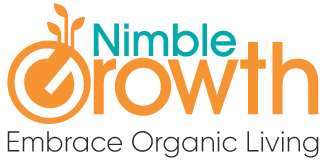A farmer is happy when the soil is happy. A healthy and fertile soil is the foundation of the food system that produces healthy produce.
The plants absorb nutrients from two sources — organic matter and minerals. Organic matter includes any plant or insects that returns to the soil and goes through the decomposition process.
However, in organic farming, soil health means more than just providing plants with macro- and micronutrients. The organic farming systems enhance soil fertility to achieve multiple goals, including the protection and, if possible, improvement of the soil’s physical condition so that the soil supports healthy plants and soil-dwelling organisms and has the ability to resist and recover from stresses like aggressive tillage or flooding.
The organic matter also binds soil particles and improves the water holding capacity of soil.
Soil is a living, dynamic ecosystem. Healthy soil is teeming with microscopic and larger organisms that perform many vital functions, including converting dead and decaying matter as well as minerals to plant nutrients.
Nutrient exchanges between organic matter, water and soil are essential to soil fertility and need to be maintained for sustainable production.
When the soil is exploited for crop production without restoring the organic matter and nutrient contents and maintaining a good structure, the nutrient cycles are broken, the soil fertility declines and the balance in the agro-ecosystem is destroyed.
Soil organic matter affects the chemical and physical properties of the soil and its overall health. Its composition and breakdown rate affect the soil structure and porosity, the water infiltration rate and moisture holding capacity of the soil, the diversity and biological activity of soil organisms and plant nutrient availability.
Organic farming systems are designed with the aim of maintaining nutrients in organic reservoirs or in bioavailable mineral forms instead of just supplying nutrients through frequent fertilizer additions.
Many common agricultural practices, especially ploughing, disc-tillage and vegetation burning etc accelerate the decomposition of soil organic matter and leave the soil susceptible to wind and water erosion. However, there are alternative management practices that enhance soil health and allow sustained agricultural productivity.
Farmers have to be smart and adopt a range of good practices such as combining no tillage or minimum tillage with a protective crop cover and crop rotations. It maintains surface residues, roots and soil organic matter, helps control weeds, and enhances soil aggregation and intact large pores, in turn allowing water infiltration and reducing runoff and erosion.
In addition to making plant nutrients available, the diverse soil organisms that thrive in such conditions contribute to pest control and other vital ecological processes.
Through combining pasture and fodder species and manuring with food and fibre crop production, mixed crop-livestock systems also enhance soil organic matter and soil health.
Farmers need to carefully select diversified cropping systems or well-managed mixed crop-livestock systems to be able to maintain a balance in nutrient and organic matter supply and removal.
Farmers can take many actions to maintain, improve and rebuild their soils, especially soils that have been under cultivation for a long time.







